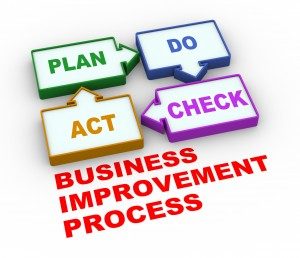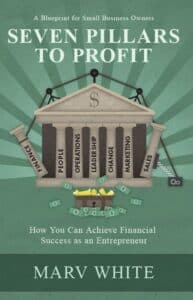Selling a small business is a significant milestone, requiring careful planning, patience, and expert guidance. Whether you’re retiring, pursuing a new opportunity, or simply ready to cash out, understanding how to sell a small business is essential for maximizing your returns. A key part of the process is finding experienced business brokers who specialize in small businesses. These professionals streamline the sales process, ensuring you get the best price while minimizing stress.
Why Use a Business Broker When Selling a Small Business?
You may be tempted to sell your business independently to save on broker fees, but experienced business brokers offer several invaluable advantages. Here are some compelling reasons to hire one:
1. Expert Valuation of Your Business
A skilled business broker can accurately determine the value of your business by analyzing its financial health, market trends, and unique strengths. This ensures you set a competitive asking price that appeals to buyers while reflecting your business’s true worth.
2. Access to a Broader Pool of Buyers
Business brokers have extensive networks of qualified buyers, including investors and other entrepreneurs. They use targeted marketing strategies to reach buyers who may not respond to public listings, increasing your chances of finding the perfect match.
3. Confidentiality and Discretion
Maintaining confidentiality is critical during a sale to avoid disrupting employees, customers, and competitors. Business brokers protect your identity and discreetly market your business to serious buyers, ensuring the process remains smooth and private.
4. Negotiation Expertise
Negotiating the sale of a business is complex and often emotional. Business brokers act as impartial intermediaries, handling negotiations to secure the best terms for both parties. Their expertise helps avoid common pitfalls and ensures a professional transaction.
Steps to Selling a Small Business Successfully
Selling a small business involves multiple stages. Here’s a step-by-step guide to ensure a successful sale:
Step 1: Plan and Prepare Your Business for Sale
Preparation is key to attracting serious buyers. Organize financial documents, such as tax returns, profit and loss statements, and contracts. A business broker can help identify areas for improvement to boost your business’s appeal.
Step 2: Conduct a Professional Valuation
Understanding your business’s value is critical. Business brokers use industry benchmarks, earnings multipliers, and asset evaluations to determine a fair asking price that maximizes your return without deterring buyers.
Step 3: Market Your Business
Business brokers create tailored marketing strategies to attract the right buyers. They use channels such as their private networks, industry-specific platforms, and targeted advertisements to showcase your business to qualified prospects.
Step 4: Screen and Qualify Buyers
Not all interested parties will be suitable buyers. Business brokers screen potential buyers to ensure they have the financial capacity and genuine interest to complete the purchase. This step saves time and ensures confidentiality.
Step 5: Negotiate the Sale
Your broker handles all negotiations, including price, terms, and contingencies, to secure the best deal. Their role ensures the process remains professional and efficient.
Step 6: Finalize the Transaction
After agreeing on terms, your broker works with attorneys, accountants, and other professionals to ensure all legal and financial details are addressed. Once complete, ownership transfers to the buyer, marking the successful sale of your business.
How to Find the Right Business Broker for Your Small Business
Selecting the right business broker is crucial for a smooth sale. Follow these tips to find the best professional for your needs:
1. Research Local Business Brokers
Search for brokers with expertise in your industry and region. Local brokers understand market dynamics and can connect you with buyers interested in your type of business.
2. Check Their Track Record
Look for brokers with a proven history of selling businesses similar to yours. Read testimonials, reviews, and case studies to gauge their success rate and client satisfaction.
3. Ask About Their Approach
During interviews, ask brokers about their strategies for valuation, marketing, and buyer outreach. Ensure they have a structured plan tailored to your business.
4. Understand Their Fees
Business brokers typically charge a commission based on the sale price. Clarify their fee structure and ensure it aligns with the level of service they provide. Transparency is key.
Common Mistakes to Avoid When Selling a Small Business
- Underestimating Preparation Time: Start preparing your business for sale at least 6–12 months in advance to address any weaknesses and maximize its value.
- Overpricing or Underpricing: Setting the wrong price can deter buyers or leave money on the table. A professional valuation prevents this.
- Neglecting Confidentiality: Failing to maintain discretion can disrupt operations and erode trust with employees and customers.
- Skipping Professional Help: Selling without expert assistance often leads to missed opportunities, lower sale prices, and avoidable complications.
Final Thoughts: Achieving Success When Selling Your Business
Learning how to sell a small business is a journey that benefits greatly from expert guidance. Business brokers bring the knowledge, networks, and negotiation skills needed to navigate this complex process successfully. By partnering with the right broker, you can achieve a seamless transaction, maximize your sale price, and confidently move on to your next venture.
Take the first step by researching qualified business brokers near you, and soon you’ll be well on your way to a successful sale. With proper preparation and the right team by your side, selling your small business can be a rewarding and profitable experience.




























